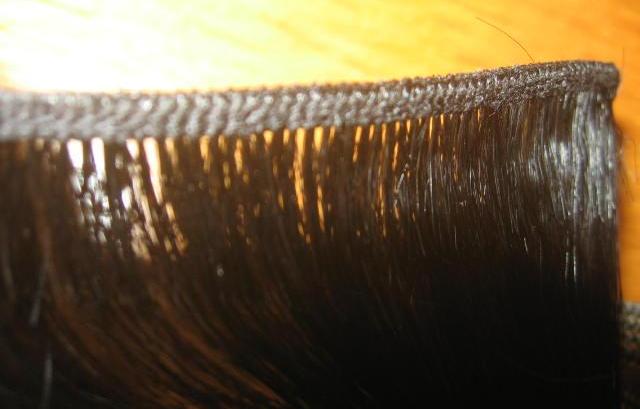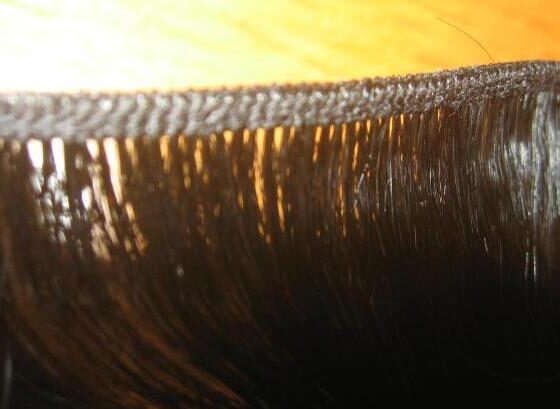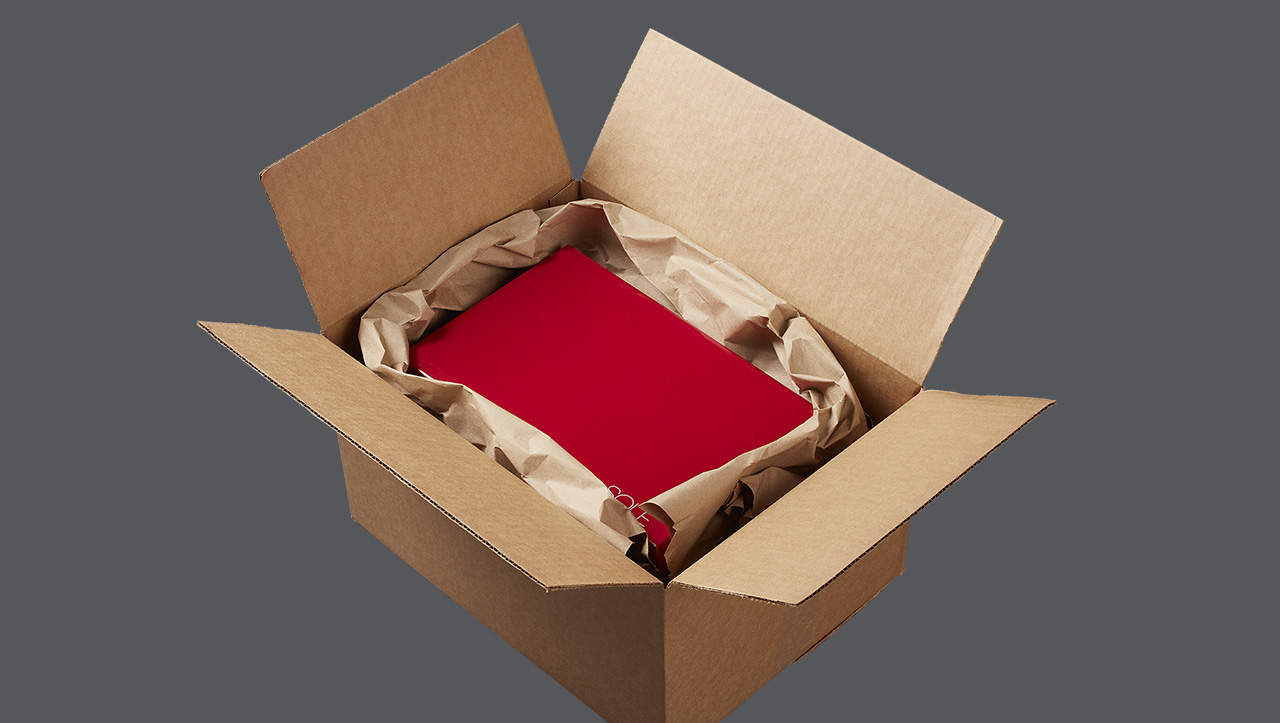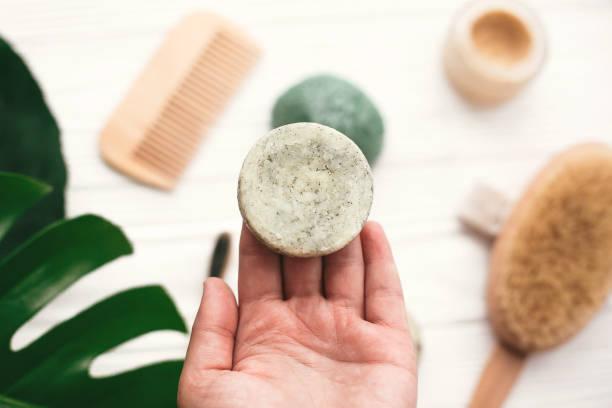

Fashion
What Is the Life Expectancy of My Sew-In Weave?
The sew in weave is the best option for ladies who want a dazzling style while also protecting their natural hair. Sew-ins are sewn on top of your braided, natural hair to protect it from heat tools, combing, and brushing damage. As a result, your natural hair will stay strong, healthy, and beautiful whenever you desire to go natural.
Sew-ins are fantastic because the better you care for them, the longer they will last. Today, we’ll look at how long sew-in weaves last and some basic things you can do to extend their life. You want your beautiful hair to last as long as possible, therefore make it last as long as possible between salon visits!
What Is the Life Expectancy of a Sew-In?
The long answer is that it depends on the type of extension you use, your hairstylist’s ability, how quickly your hair grows, how well you follow hair extension care requirements, and a few other aspects. But, in a nutshell, sew-ins usually last between six and twelve weeks. You can maintain your Sew-in for about 10 weeks if you choose the right stitches and take care of them carefully.
How Can You Make Your Sew-In Last Longer?
When weave hair aren’t properly cared for, they get itchy, unclean, or oily, and they lose their capacity to hold style. Following a few basic sew-in care guidelines can prevent all of these problems.
Wrap Your Hair in a Scarface at Night: There are no exceptions when it comes to wrapping your sew-ins! Put your hair up in a protective satin bonnet, scarf, or hair wrap before going to bed so the strands don’t get tangled. We also suggest buying a satin pillowcase and styling and prepping your hair before going to bed. More information on how to keep your hair extensions safe while sleeping can be found here.
Hair Should Be Washed Gently: Installed weaves can be washed once a week or every other week to extend their life and keep their beautiful luster and texture. Make sure to use a sulfate-free shampoo and conditioner whenever you wash your sew-in extensions. If the ends of your extensions appear and feel dry, you may want to deep condition them. After you’ve completed shampooing and conditioning your hair, sit under a hooded dryer to properly dry your hair weave extensions and natural hair.
Select High-Quality Hair: To make your sew-ins last, start with premium, high-quality virgin hair. Straightening and curling your hair without inflicting lasting damage is possible with good hair, which is fantastic news for those of us who like to be versatile. Check out our hair bundle deals to see for yourself that high-quality virgin hair doesn’t have to be expensive.
Observe The Hair: Finally, remember to treat your hair weave extensions with care. They should be cared for and maintained in the same way as your natural hair is. To keep your weave last as long as possible, wash, brush, wrap, and protect it as much as possible.
The Signs That It’s Time to Remove Your Sew-In:
Even if you take proper care of your extensions, you’ll notice indicators that it’s time to remove them. Your natural hair is still growing (which is a positive indication because it shows your hair is healthy and well-protected). Your natural hair grows out and pushes the extensions down after about two months. It’s time to take you to sew-in down when this happens.
Fashion
How paper void fill works?

In the world of packaging, finding eco-friendly solutions is more crucial than ever. One such solution gaining popularity is paper void fill. But how does it work, and why is it considered sustainable? Let’s dive into the details.
What is Void Fill?
Before we delve into the specifics of paper void fill, let’s first understand what void fill is all about. Void filler materials are used in packaging to fill empty spaces within boxes or containers. The primary purpose is to prevent items from shifting during transit and to provide cushioning to protect against damage.
Traditionally, void fill materials have been made from materials like polystyrene foam or plastic air pillows. While effective, these materials pose significant environmental challenges due to their non-biodegradable nature.
Introducing Paper Void Fill
Paper void fill, on the other hand, offers a sustainable alternative. Made from recycled paper or renewable sources like Kraft paper, it provides excellent cushioning while being biodegradable and recyclable. But how does it work?
How Paper Void Fill Works
Paper void fill comes in various forms, including crumpled paper, shredded paper, or paper pads. The idea is simple yet effective: these paper materials are placed inside shipping boxes to fill empty spaces around products, ensuring they remain secure during transportation.
When an item is placed in a box for shipping, it’s essential to ensure there’s minimal movement during transit. Paper void fill achieves this by conforming to the shape of the product and the box, effectively immobilizing the item and preventing it from shifting or bouncing around.
Advantages of Paper Void Fill
Now that we understand how paper void fill works, let’s explore why it’s considered a sustainable choice for packaging:
- Biodegradable: Unlike traditional void fill materials, paper void fill is biodegradable. This means that once it reaches the end of its life cycle, it can break down naturally without causing harm to the environment.
- Recyclable: Paper void fill can be easily recycled along with other paper products, reducing the amount of waste sent to landfills.
- Renewable: Many paper void fill products are made from recycled paper or sustainably sourced paper, making them a renewable resource.
- Effective Cushioning: Despite being eco-friendly, paper void fill doesn’t compromise on performance. It provides excellent cushioning to protect fragile items during transit, ensuring they arrive at their destination intact.
Sustainable Void Fill Solutions
As businesses and consumers alike become more environmentally conscious, the demand for sustainable void fill continues to rise. Paper void fill emerges as a frontrunner in this quest for sustainability, offering a viable alternative to traditional packaging materials.
By incorporating paper void fill into their packaging strategies, businesses can reduce their carbon footprint and demonstrate their commitment to environmental stewardship. Additionally, consumers are increasingly favoring brands that prioritize sustainability, making eco-friendly packaging choices a win-win for both businesses and the planet.
Conclusion
In conclusion, paper void fill presents a sustainable solution for packaging, offering effective cushioning while minimizing environmental impact. By understanding how paper void fill works and its advantages over traditional void fill materials, businesses can make informed decisions to embrace sustainability in their packaging practices.
As the demand for eco-friendly packaging continues to grow, paper void fill stands out as a practical and environmentally responsible choice. By making the switch to paper void fill, businesses can not only protect their products during transit but also contribute to a healthier planet for future generations.
Incorporating sustainable practices like paper void fill is a step in the right direction towards building a more environmentally conscious world. Let’s embrace the power of paper void fill and pave the way for a greener future.
Fashion
How to Make a Castle Out of Cardboard for a School Project?

Are you ready to embark on a fun and creative school project? Building a castle out of cardboard can be an exciting and rewarding endeavor that combines imagination, craftsmanship, and a touch of history. Whether you’re a parent helping your child with a school assignment or a student looking for a hands-on project, this guide will walk you through the steps to create a stunning cardboard castle that will impress everyone.
Getting Started: Gathering Your Materials
Before you dive into construction, it’s essential to gather all the necessary materials. Here’s what you’ll need:
Materials:
- Large cardboard tubes (also known as cardboard cylinders or rolls)
- Cardboard sheets or boxes
- Scissors or a utility knife
- Ruler
- Pencil
- Hot glue gun and glue sticks
- Paints, markers, or other decorative materials
- Optional: Craft paper, fabric scraps, or other embellishments
Keyword Integration:
When gathering materials for your cardboard castle project, large cardboard tubes will be your best friend. These sturdy cylinders provide excellent structural support and can be easily shaped and cut to fit your design. You can find cardboard tubes for crafts at most craft stores or even repurpose them from old carpet or wrapping paper rolls.
Planning Your Castle Design
Once you have all your materials assembled, it’s time to let your creativity flow and design your castle. Here are some tips to help you get started:
1. Research:
Take some time to research different types of castles for inspiration. Whether you’re interested in medieval fortresses, fairy-tale palaces, or historic landmarks, studying real castles can provide valuable insights into architectural features and design elements.
2. Sketch Your Ideas:
Grab a pencil and paper and start sketching out your castle design. Consider the layout, towers, walls, and any other features you want to include. Don’t worry about getting every detail perfect at this stage; the goal is to brainstorm ideas and refine your vision.
3. Keep it Simple:
While it’s tempting to create a complex and elaborate castle, remember that simplicity can be just as effective. Focus on a few key features that will make your castle stand out, and don’t be afraid to adapt your design as you go along.
Keyword Integration:
As you plan your cardboard castle project, keep in mind the materials you’ll be using. Large cardboard tubes can be transformed into impressive towers, while cardboard sheets provide a sturdy base for walls and roofs.
Building Your Cardboard Castle
With your design finalized, it’s time to roll up your sleeves and start building. Follow these step-by-step instructions to bring your cardboard castle to life:
1. Construct the Base:
Begin by cutting out a large square or rectangular piece of cardboard to serve as the base of your castle. This will provide stability and support for the rest of the structure.
2. Build the Walls:
Using cardboard sheets or boxes, cut out pieces to create the walls of your castle. You can make them as tall or short as you like, depending on the scale of your design. Use a hot glue gun to attach the walls to the base securely.
3. Create Towers:
For the towers of your castle, use large cardboard tubes. Cut the tubes to the desired height and shape them into cylindrical or conical towers. Secure them to the base with hot glue, making sure they are evenly spaced around the perimeter.
4. Add Details:
Once the basic structure is in place, it’s time to add decorative details. Use paints, markers, or other craft materials to embellish the walls, towers, and roof of your castle. You can also add windows, doors, and battlements for extra flair.
5. Finishing Touches:
To complete your cardboard castle, consider adding finishing touches like flags, banners, or landscaping around the base. Get creative and personalize your castle to make it truly unique.
Keyword Integration:
Throughout the construction process, large cardboard tubes will play a crucial role in creating the towers of your castle. These versatile cylinders can be easily cut, shaped, and decorated to bring your design to life.
Conclusion
Building a castle out of cardboard is a fun and educational project that allows you to unleash your creativity and learn about history and architecture. By following the steps outlined in this guide and incorporating large cardboard tubes into your design, you can create a masterpiece that will be the envy of your classmates or the highlight of a school project. So gather your materials, let your imagination soar, and get ready to build the cardboard castle of your dreams!
Fashion
DIY: Crafting Natural Shampoos and Conditioners at Home

In a world where the pursuit of healthy and eco-friendly lifestyle choices is gaining momentum, it’s no wonder that DIY natural hair care products have become increasingly popular. The desire to minimize exposure to harmful chemicals and reduce environmental impact has led many individuals to explore the realm of homemade shampoos and conditioners. This article delves into the world of crafting natural hair care products at home, offering insights into the benefits, techniques, and recipes that can help you achieve luscious locks while embracing a sustainable approach.
From understanding essential ingredients to customizing formulas for specific hair types, we’ll guide you through the process of creating personalized DIY shampoos and conditioners that are both effective and safe. So, whether you have oily, dry, or normal hair, get ready to unlock the secrets to healthier and more radiant tresses.
The Rising Demand for Natural Hair Care Products
Natural hair care products have been gaining popularity in recent years, as more and more people become conscious of the potential risks associated with traditional commercial shampoos and conditioners. The demand for natural alternatives has led to an increase in the availability of natural hair care products in stores, but many people are also turning to DIY options as a way to have complete control over what goes into their hair care routine.
Advantages of Homemade Shampoos and Conditioners
Making your own shampoo and conditioner bundle at home comes with a host of advantages. For starters, you have the freedom to customize the ingredients to suit your specific hair type and concerns. Whether you have oily, dry, or normal hair, there are recipes that can address your individual needs.
Additionally, homemade natural hair care products often contain fewer harsh chemicals and synthetic additives compared to their commercial counterparts. This can be particularly beneficial for people with sensitive scalps or those looking to minimize their exposure to potentially harmful ingredients.
Not to mention, crafting your own shampoos and conditioners can be a fun and rewarding experience. It allows you to tap into your creativity and experiment with different ingredients and fragrances until you find the perfect combination that works for you. So, why not give it a try and embrace the world of DIY natural hair care?
Essential Ingredients for DIY Homemade Shampoos and Conditioners
When it comes to making natural shampoos and conditioners at home, there is an abundance of natural ingredients to choose from. From soothing aloe vera to nourishing coconut oil, you can find a range of ingredients that offer unique benefits for your hair. Some other popular options include essential oils like lavender and tea tree oil, herbs such as chamomile and rosemary, and even pantry staples like apple cider vinegar.
Understanding the Roles of Different Ingredients
Each ingredient used in homemade shampoos and conditioners plays a specific role in promoting healthy and beautiful hair. For example, aloe vera is known for its hydrating properties, making it an excellent choice for dry hair. On the other hand, tea tree oil is often used in shampoos for oily hair due to its ability to control excess oil production.
It’s important to understand the benefits and limitations of each ingredient before incorporating them into your DIY hair care routine. This will help you create formulas that are tailored to your specific needs and deliver the desired results.
Crafting Natural Shampoos: Recipes and Techniques for Different Hair Types
1. Shampoo Recipes for Oily Hair
If you struggle with oily hair, fear not! There are homemade shampoo recipes that can help combat excess oil and leave your hair feeling fresh and clean. One popular recipe includes ingredients like lemon juice, witch hazel, and aloe vera gel, which work together to balance oil production and cleanse the scalp without stripping its natural oils.
2. Shampoo Recipes for Dry Hair
For those dealing with dry and brittle hair, homemade shampoos can provide the much-needed hydration and nourishment. One recipe worth trying involves mixing coconut milk, honey, and olive oil, which are all known for their moisturizing properties. This combination helps replenish moisture, leaving your hair soft, smooth, and manageable.
3. Shampoo Recipes for Normal Hair
Even if your hair is considered “normal,” you can still benefit from using natural shampoos that promote overall hair health. A simple recipe using ingredients like castile soap, aloe vera gel, and your choice of essential oils can effectively cleanse and maintain the natural balance of your hair without causing any unnecessary dryness or oiliness.
Creating DIY Conditioners: Nourishing and Moisturizing Formulas for Healthy Hair
1. Conditioner Recipes for Deep Hydration
Conditioners are essential for maintaining soft and manageable hair. If you’re looking for deep hydration, try a homemade conditioner using ingredients like avocado, shea butter, and argan oil. These ingredients are rich in nutrients and natural oils, providing intense moisture and leaving your hair feeling silky and revitalized.
2. Conditioner Recipes for Intense Repair
For those with damaged or chemically treated hair, a repairing conditioner can work wonders. Consider using ingredients like yogurt, coconut oil, and egg yolks to create a nourishing and restorative conditioner. These ingredients help strengthen the hair shaft, repair damage, and improve overall hair health.
3. Conditioner Recipes for Frizz Control
Frizzy hair can be a daily frustration, but a homemade conditioner can help tame those unruly strands. Opt for ingredients such as shea butter, jojoba oil, and aloe vera juice to create a frizz-fighting conditioner. These ingredients provide moisture, seal the hair cuticles, and reduce frizz, leaving you with smoother and more manageable hair.
So, whether you’re looking to save money, avoid harsh chemicals, or simply embrace your inner DIY enthusiast, crafting your own natural shampoos and conditioners can be a rewarding and beneficial endeavor. Dive into the world of homemade hair care and discover the joy of healthy, beautiful hair on your own terms!Crafting Natural Hair Care Products
Tips for Customizing and Personalizing Your Homemade Hair Care Products
When it comes to DIY hair care, the beauty lies in the ability to customize and personalize your products. One of the easiest ways to do this is by incorporating essential oils into your shampoo and conditioner recipes. Not only do essential oils add a delightful scent, but they also offer various benefits for your hair. For example, lavender oil is known to promote hair growth, while tea tree oil can help combat dandruff and promote a healthy scalp. Experiment with different essential oils to find the perfect combination for your hair.
In addition to essential oils, you can also enhance the effectiveness of your homemade shampoo and conditioner bundle by adding herbs and botanicals. For instance, chamomile flowers can highlight natural highlights in blonde hair, and rosemary leaves can stimulate hair growth. Simply infuse these ingredients into your shampoo or conditioner base to reap their benefits. Get creative and explore the world of herbs and botanicals to find the ones that work best for your hair type.
Not only can you customize the ingredients of your homemade hair care products, but you can also personalize their scent. Adding a few drops of your favorite fragrance oil or creating a unique blend of essential oils can give your shampoo and conditioner a signature aroma. Not only will your hair smell amazing, but you’ll also feel a sense of pride using a product that truly represents your personality.
Conclusion
Crafting your own natural shampoos and conditioners at home is a rewarding and empowering experience. With the ability to customize, personalize, and save money, the DIY approach is truly a game-changer. Whether you’re looking to switch to natural ingredients, reduce plastic waste, or simply have fun experimenting with different combinations, creating your own hair care products allows you to take control of your beauty routine. So grab your ingredients, mix, and enjoy the benefits of DIY natural hair care. Your hair will thank you!

 Business3 years ago
Business3 years agoFind out how useful a loan is without a credit check

 Business2 years ago
Business2 years agoBest Workplace Upgrade

 Digital Marketing3 years ago
Digital Marketing3 years agoIs YouTube Marketing Capable of Taking Your Business to the Next Level?

 Food3 years ago
Food3 years ago5 Best and Worst Foods for Boosting Metabolism

 Business3 years ago
Business3 years agoContent Creation Tips Every Digital Manager Needs to Know

 Travel3 years ago
Travel3 years agoA Quick Traveler’s Guide to Malaga – You Can’t-Miss

 Lifestyle3 years ago
Lifestyle3 years agoHow to Choose the Best Air Fryer for Me

 Fashion3 years ago
Fashion3 years ago8 Top Leather Jacket Picks To Try Out This Year















